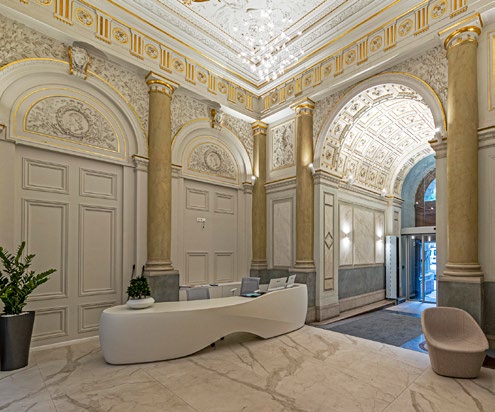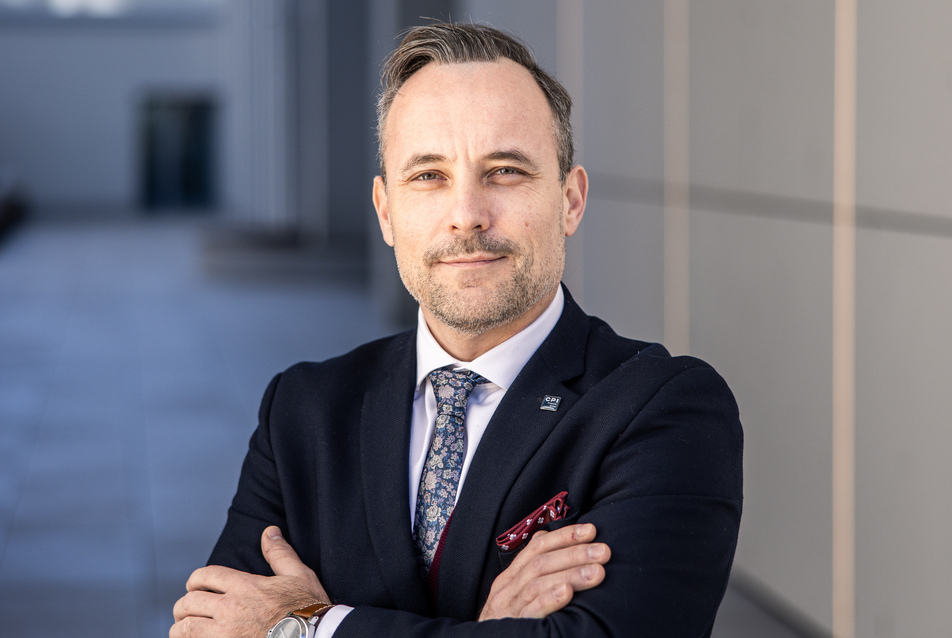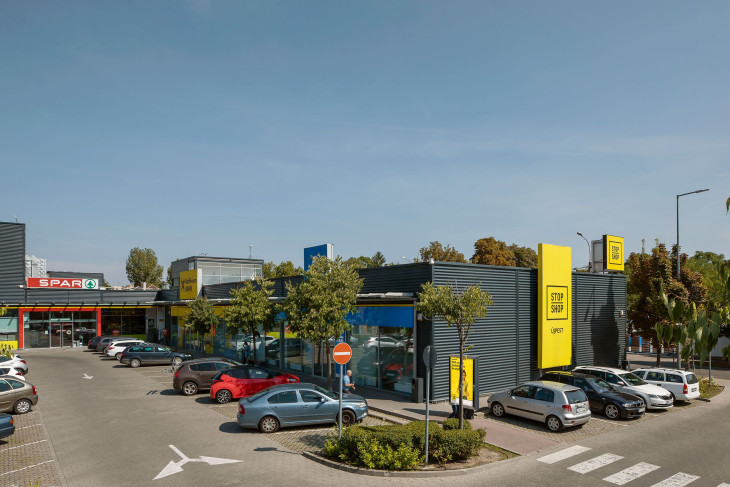Before joining CPI, Gereben was employed by TriGranit Development Corporation and Cushman & Wakefield.
After graduating from Harrow High School in Ontario, Canada, Gereben studied hotel and commercial real estate management at the College of Commerce and Economics. He obtained his master’s degree at the University of Pécs, specializing in management consulting.
He is a member of the Royal Institution of Chartered Surveyors. He is married, has two children, and enjoys sailing and engaging in family-oriented activities.
HOW DESTABILIZING IS THE GEOPOLITICAL BACKGROUND TO THE REAL ESTATE BUSINESS IN HUNGARY TODAY?
All geopolitical turmoil, including the sanctions threatened by the Trump administration, has a destabilizing macroeconomic effect on the markets, and Hungary
is no exception. There is no direct change related to the yields or conditions of a lease; however, the uncertain macro environment is prompting capital market players to reconsider their timing to avoid unpredictable risks. This also slows down leasing demand, as companies are reluctant to commit themselves in such volatile circumstances.
“If we have the will and the ability to transform into an integrated service provider, where we consider tenants as partners aiming for a mutual goal, where we can understand and react to the broad spectrum of demands from the tenants, where we can cater to the different needs including flexibility, human focus and community, we will succeed.”
WHICH SECTORS ARE ON THE RISE AND FALL IN 2025?
Regarding the CPI portfolio, the hotel sector had an exceptional year last year, and we predict that KPIs will continue to rise this year as well. As a result, we are completing two hotel refurbishments this year: the 54-room, four-star superior Mamaison Hotel Chain Bridge will open its doors at the beginning of the summer, and the adjacent 99-room, four-star Mamaison Vibe Hotel Budapest Downtown will be completed by November this year. Retail Parks are also on the rise. Our portfolio, comprising 14 Stop Shops and two City Markets, has 100% occupancy, with continuous demand for new leases. The shopping centers and office sector will present a challenge from a leasing perspective in 2025.

IS BUILT-TO-SUIT THE ONLY DEVELOPMENT MODEL THAT MAKES SENSE IN HUNGARY TODAY, OR IS THERE STILL ROOM FOR SPECULATIVE DEVELOPMENTS?
It depends on the asset class: I can still see retail park development opportunities in less saturated parts of Hungary, where a significant pre-lease ratio is achievable. In the office sector, either a BTS model or a more than 70% pre-lease is required to secure viable project financing.
HOW AVAILABLE (AND HOW AFFORDABLE) IS BANK FINANCE NOW? IS THIS A CONSTRAINT ON DEVELOPMENT?
We can secure refinancing loans for our operating assets a margin of approximately 2.5%, so there is liquidity available on the market, but banks are much more circumspect when examining the attributes of an existing property. When it comes to development loans, it is a tougher nut to crack in two areas: a) convincing banks to finance a project and b) achieving conditions that fit into the business case. The alternative is to finance a development from equity and acquire an operating loan after completion, but that can obviously put extra pressure on the developer.
ESG CERTIFICATION HAS LONG BEEN THE NORM IN THE OFFICE SECTOR AND INCREASINGLY IS SO IN INDUSTRIAL/LOGISTICS. WILL IT INEVITABLY GAIN GROUND IN OTHER SECTORS?
When it comes to acquiring financing, the answer is most probably yes, as banks have increasing demands for sustainability attributes. On the other hand, ESG certification on a retail asset does not significantly influence tenants’ decisions when it comes to commercial leasing.
GIVEN THE GROWING CONCERNS OVER CARBON FOOTPRINTS AND THE IMPACT ON COMMUNITIES AS WELL AS THE ENVIRONMENT, IS THE RENOVATION (AND PERHAPS REPURPOSING) OF EXISTING BUILDINGS A BETTER OPTION THAN DEVELOPING A PROJECT FROM SCRATCH?
Definitely, yes. CPI is a strong supporter of refurbishing, revitalizing, and converting the functions of existing properties, not only from a sustainability point of view but also in response to the changing demands of the urban environment.
FROM AN URBAN CITYSCAPE PERSPECTIVE, WHAT IS MISSING FROM BUDAPEST?
A car-free inner city and Danube riverbanks, along with small city center concepts in suburban areas, aim to strengthen local communities and businesses.
WHAT, IF ANYTHING, NEEDS TO BE DONE TO IMPROVE THE PUBLIC PERCEPTION OF THE REAL ESTATE BUSINESS?
The demands towards the commercial real estate markets have changed. If a company remains a developer, asset manager, investor or a fund in the classical term, it will fail. If we have the will and the ability to transform into an integrated service provider, where we consider tenants as partners aiming for a mutual goal, where we can understand and react to the broad spectrum of demands from the tenants, where we can cater to the different needs including flexibility, human focus and community, we will succeed.







.jpg)





